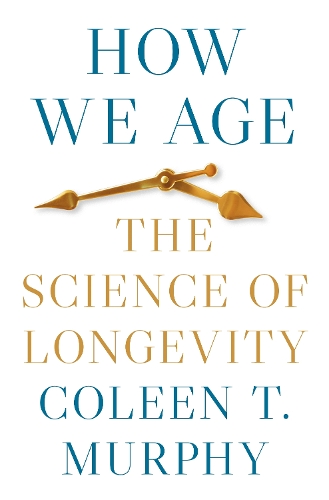
How We Age: The Science of Longevity
(Hardback)
Available Formats
Publishing Details
How We Age: The Science of Longevity
By (Author) Coleen T. Murphy
Princeton University Press
Princeton University Press
21st February 2024
United States
Classifications
General
Non Fiction
Cellular biology (cytology)
Medical genetics
Anatomy
Physiology
Neurosciences
612.67
Physical Properties
Hardback
464
Width 155mm, Height 235mm
Description
How recent breakthroughs in longevity research offer clues about human aging
All of us would like to live longer, or to slow the debilitating effects of age. In How We Age, Coleen Murphy shows how recent research on longevity and aging may be bringing us closer to this goal. Murphy, a leading scholar of aging, explains that the study of model systems, particularly simple invertebrate animals, combined with breakthroughs in genomic methods, have allowed scientists to probe the molecular mechanisms of longevity and aging. Understanding the fundamental biological rules that govern aging in model systems provides clues about how we might slow human aging, which could lead in turn to new therapeutics and treatments for age-related disease.
Among other vivid examples, Murphy describes research that showed how changing a single gene in the nematode worm C. elegans doubles its lifespan, extending not only the end of life but also the youthful, healthy part of life. Drawing on work in her own lab as well as other recent research, Murphy describes the history and current state of the field, explaining longevitys links to reproduction and mating, sensory and cognitive function, inheritances from our ancestors, and the gut microbiome. Written with clarity and wit, How We Age provides a guide to the science: what we know about aging, how we know what we know, and what we can do with this new knowledge.
Author Bio
Coleen T. Murphy is professor of genomics and molecular biology at Princeton University. She is director of Princetons Glenn Foundation for Research on Aging and director of the Simons Collaboration on Plasticity in the Aging Brain.
